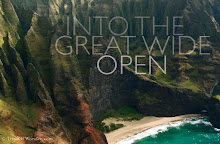Excerpts below from Robert W. McChesney's introduction to Profit Over People: Neoliberalism and Global Order by Noam Chomsky, published 1999 by Seven Stories Press:
... That is neoliberal democracy in a nutshell: trivial debate over minor issues by parties that basically pursue the same pro-business policies regardless of formal differences and campaign debate. Democracy is permissible as long as the control of business is off-limits to popular deliberation or change; i.e. so long as it isn't democracy.
The neoliberal system therefore has an important and necessary byproduct - a depoliticized citizenry marked by apathy and cynicism.
. . . . . . . .
On the other hand, to be effective, democracy requires that people feel a connection to their fellow citizens, and that this connection manifests itself through a variety of nonmarket organizations and institutions. A vibrant political culture needs community groups, libraries, public schools, neighborhood organizations, cooperatives, public meeting places, voluntary associations, and trade unions to provide ways for citizens to meet, communicate, and interact with their fellow citizens. Neoliberal democracy, with its notion of the market über alles, takes dead aim at this sector. Instead of citizens, it produces consumers. Instead of communities, it produces shopping malls. The net result is an atomized society of disengaged individuals who feel demoralized and socially powerless.
. . . . . . . .
... The corporate news media, the PR industry, the academic ideologues, and the intellectual culture writ large play the central role of providing the "necessary illusions" to make this unpalatable situation appear rational, benevolent, and necessary if not necessarily desirable. As Chomsky hastens to point out, this is no formal conspiracy by powerful interests: it doesn't have to be. Through a variety of institutional mechanisms, signals are sent to intellectuals, pundits, and journalists pushing them to see the status quo as the best of all possible worlds, and away from challenging those who benefit from the status quo. Chomsky's work is a direct call for democratic activists to remake our media system so it can be opened up to anticorporate, antineoliberal perspectives and inquiry. It is also a challenge to all intellectuals, or at least those who express a commitment to democracy, to take a long, hard look in the mirror and to ask themselves in whose interests, and for what values, do they do their work.











